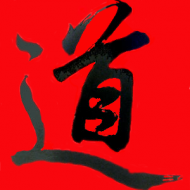There once was a palace official named Cheng Guang Wei who owned a servant named Song Li.
As the pressures of life wore on Director Cheng, began to sink into a deep depression. Soon he began to lose all hope in life and desperately sought relief. Not content with the wine and festivities at hand, his attention soon turned to his servant Song Li, who always seemed to be happy.
Song Li was ploughing the fields, up to his ankles in mud, singing and seemingly enjoying his life.
Upon observing this. Director Cheng walked up to the edge of the field and called out “Song Li, why are you so happy? What is the secret of your contentment?”
To which Song Li responded, “Sir, come into the field with me, and I will tell you.” The director, not wanting to get himself muddy said, “No, tell me from where you are.” To which Song Li replied, “I cannot explain everything to you if you do not come into the field.”
Director Cheng, aggravated by this reply, answered. “Very well, since you refuse to tell me, tomorrow you will work in the stables.” Song Li answered, “If that is your wish, sir,” and went about his work contentedly.
Two weeks went by, and the pressures of the palace were starting to take a serious toll on Director Cheng. All of his problems, it seemed, were insurmountable. Locked in turmoil, he began to roam his property seeking peace until he heard singing coming from one of the stalls in the stables.
Director Cheng went to investigate and sure enough, it was Song Li, now up to his knees in horse manure singing like a bird.
At first Director Cheng was enraged at Song Li’s contentment, but then became perplexed, because the duties of Song Li’s new job were much more uncomfortable than the previous work.
Director Cheng approached the edge of the stables and called, “Song Li, why are you so happy? What is the secret of this contentment you possess?” To which Song Li responded, “Sir come into the stall with me, and I will tell you.”
Repulsed by the stench of the horse manure and filth, not to mention feeling protective of his royal robe. Director Cheng answered, “Song Li, tell me the secret of this joy amidst of a barn full of stench and dung.” Song Li replied “Sir, I can only tell you if you come into the stall with me.”
“If that is your answer, then tomorrow you will work in Pig Sty!
Song Li answered, “If that is your wish, sir” and went about his work contentedly.
Well, things went from bad to worse for Director Cheng in the palace; seeing that he was about to lose everything, he contemplated taking his own life. Making one last round of his property, he again heard singing, this time from the hog pens.
Realizing it was Song Li, Director Cheng slowly approached. Sure enough, there was Song Li, up to his thighs in pig dung, slop and filth, and still singing.
Leaning against the fence. Director Cheng called out, “Song Li, why are you so happy? What is the secret of your contentment and joy?” To which Song Li responded, “Sir, come into the pen with me, and I will tell you.”
Director Cheng, now at the end of his rope, answered, “Very well, I will come in with you,” and began to climb the fence to enter the hog pen.
“Stop!” shouted Song Li, “I will come to you, do not debase yourself on my account!”
But now you will truly listen to what I have to share and are ready to learn the words I speak.
For, now you are willing to sacrifice all, even your physical comfort, to receive spiritual knowledge and insight.”
The moral of the story is clear: unless we are ready to abandon all masks (pretences and defence mechanisms) of the emotional ego, it is extremely difficult to free ourselves from the toxic emotions that steal our life-force energy and direct our lives.
If we are not intimate with our emotions, we cannot perceive the dynamics behind those emotions.
After all, emotions are only energy currents which flow in, out, and through our bodies.
Because our emotions reflect our intentions, any awareness of unprocessed emotions will lead to an awareness of deep-seated intentions.
It is through this understanding that Qigong doctors and their students can train their emotions and mental thinking to regulate the Shen. (Heart/Mind)
Thanks to Jerry Alan Johnson

